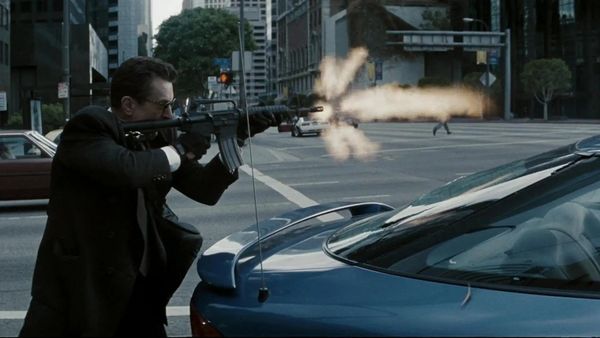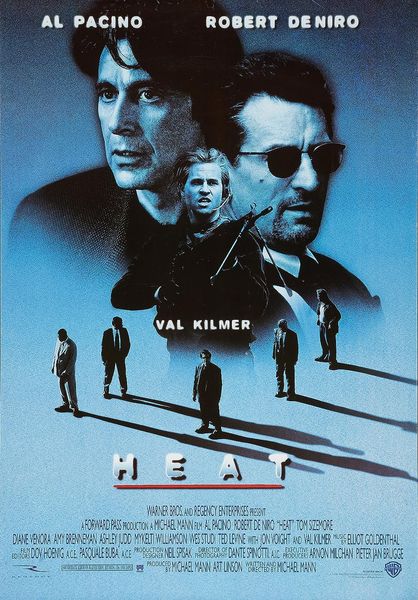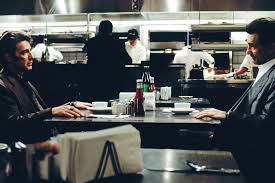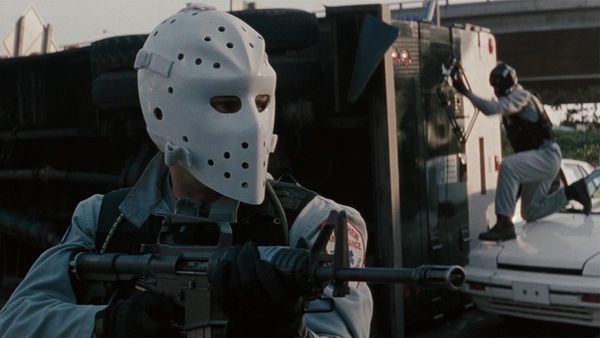Heat (1995)

“Heat”: A Masterful Crime Drama Directed by Michael Mann
Suggested videos for you:
Papillon: The Iron Will of a Thief
Subservience 2024 : Beyond Flesh: When Robots Become Indistinguishable from Humans
The Beekeeper 2 (2025 ): A Secret Agent’s Battle Against a Fraud Syndicate
Released in 1995, “Heat” is a landmark crime drama directed by Michael Mann, renowned for its meticulous attention to detail and exploration of complex characters. The film has garnered critical acclaim for its gripping narrative, strong performances, and iconic action sequences, solidifying its place as one of the greatest heist films in cinematic history. With an ensemble cast featuring Al Pacino, Robert De Niro, and Val Kilmer, “Heat” masterfully examines the thin line between law enforcement and criminality, revealing the human emotions that drive each character.

The narrative follows the intersecting lives of LAPD detective Vincent Hanna (Al Pacino) and master thief Neil McCauley (Robert De Niro). As Hanna and his team work to apprehend McCauley and his crew, the film delves into the personal and professional struggles faced by both men. Hanna is a dedicated cop whose obsession with his work takes a toll on his relationships, while McCauley is a meticulous criminal who adheres to a strict code of conduct. The tension builds as their paths inevitably converge, leading to a climactic showdown that underscores the themes of loyalty, sacrifice, and the costs of both criminal and law enforcement lifestyles.

Michael Mann’s direction is a standout feature of “Heat.” He creates a richly detailed world that immerses viewers in the gritty atmosphere of Los Angeles. The film’s cinematography, handled by Dante Spinotti, captures the city’s sprawling urban landscape, juxtaposing the beauty of nighttime cityscapes with the darker elements of crime. Mann’s ability to blend action with character-driven storytelling sets “Heat” apart from typical crime films. The film’s pacing allows for moments of tension and introspection, giving audiences a chance to connect with the characters on a deeper level.

“Heat” is primarily classified as a crime drama, but it also incorporates elements of thriller and action. The film explores profound themes of duality, ambition, and the moral complexities of its characters. As Hanna and McCauley navigate their respective worlds, the film raises questions about the nature of justice and the sacrifices made in pursuit of one’s goals. The dialogue is sharp and insightful, revealing the inner thoughts and motivations of the characters, particularly in the iconic coffee shop scene where Pacino and De Niro share the screen for the first time.

The performances in “Heat” are nothing short of exceptional. Al Pacino delivers a powerful portrayal of Vincent Hanna, capturing the intense dedication and emotional turmoil of a man torn between his career and personal life. Robert De Niro’s nuanced performance as Neil McCauley presents a cool, calculating character whose code of ethics is tested throughout the film. The supporting cast, including Val Kilmer, Diane Venora, and Tom Sizemore, adds depth to the narrative, creating a rich tapestry of relationships that enhances the film’s emotional weight.
Upon its release, “Heat” received critical acclaim, praised for its storytelling, direction, and performances. It has since become a cultural touchstone, influencing countless films and filmmakers. The film’s heist sequences, particularly the bank robbery scene, are often cited as some of the most thrilling in cinema history, showcasing Mann’s ability to create tension and excitement.
In conclusion, “Heat” is a masterful crime drama that captivates audiences with its intricate storytelling and complex characters. Directed by Michael Mann, the film combines intense action, emotional depth, and stunning visuals, inviting viewers to explore the blurred lines between law and crime. Through its exploration of ambition, morality, and sacrifice, “Heat” stands as a significant work in the genre, leaving a lasting impact on both audiences and filmmakers alike. Its legacy continues to resonate, reminding us of the profound human struggles that exist within the world of crime and justice.











